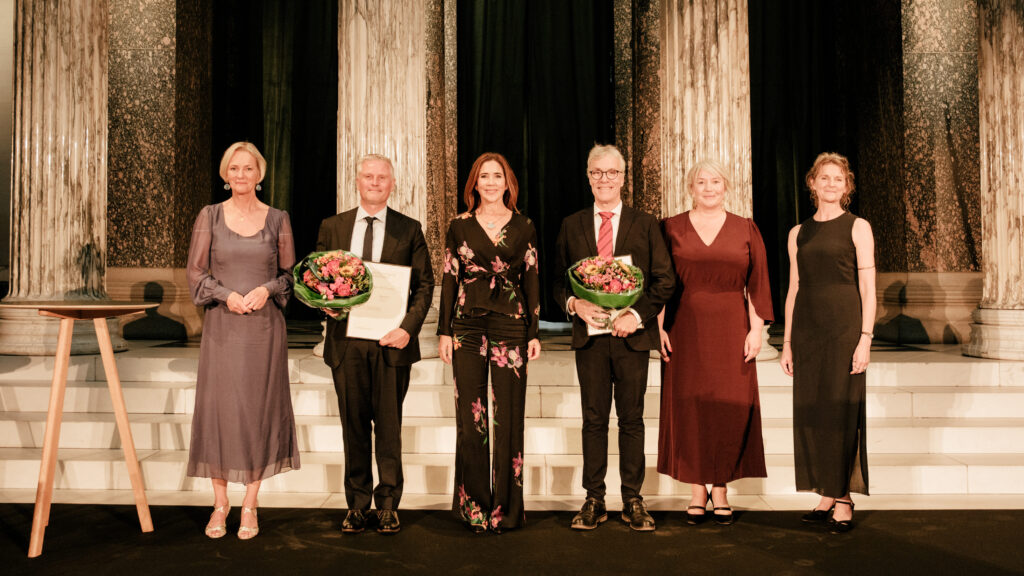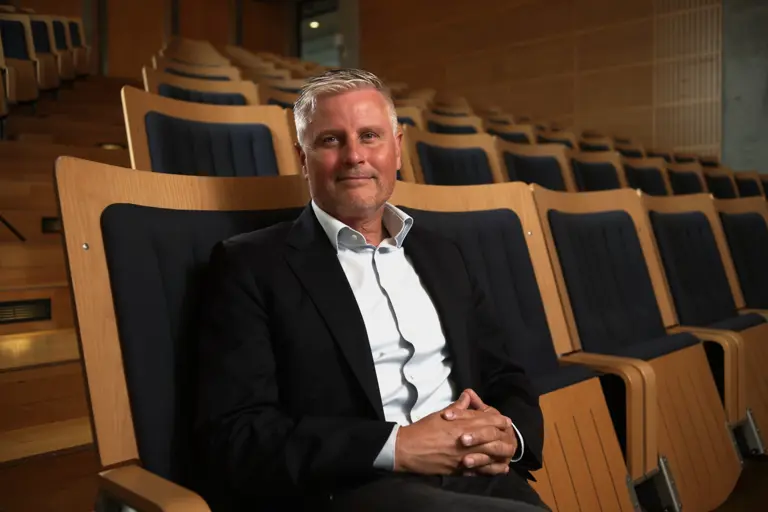
Claes de Vreese, director of the Digital Democracy Center at the University of Southern Denmark and independent member of the SSH-council, receives the Carlsberg Foundation Research Prize 2025. The prize recognizes his many years of scientific effort in the field of artificial intelligence in relation to media and democracy.
Carlsberg Foundation
Founded in 1876, the Carlsberg Foundation is a corporate foundation with a philanthropic purpose. It awards grants for philanthropic purposes. This year, their research prize was presented by Her Majesty the Queen of Denmark and the Danish Minister of Education and Research Christina Egelund during a ceremony at Ny Carlsberg Glyptotek in Copenhagen. The prize is worth DKK 2 million (€268,000), of which DKK 1.5 million is earmarked for research activities and DKK 500,000 is a personal gift.
About the Carlsberg Foundation Research Prizes
The Carlsberg Foundation Research Prizes were established in 2011 to mark the 200th anniversary of the birth of the foundation’s founder, JC. Jacobsen. The aim is to recognize two active Danish researchers in Denmark or abroad who have made crucial contributions to Danish basic research at a high international level. The prizes are also intended to encourage further research and are used for stays abroad, fieldwork, purchase of equipment, or remuneration for scientific work.

Appreciation for De Vreese’s work
The chair of the Carlsberg Foundation, Professor Majken Schultz, praises De Vreese’s work: “Claes Holger de Vreese has paved the way for important new knowledge at the highly topical intersection between democracy and artificial intelligence.”
Field of research
Claes Holger de Vreese works at the intersection of political communication: he investigates the interaction between media, politics, public opinion, and citizens. Among other things, he studies how the media convey political messages, how political communication is changing, and what the effects are on the behavior and perception of citizens. An important theme is the role of technology—particularly artificial intelligence—in news provision, campaigns, and the dissemination of information.
Main lines of research
- The influence of generative AI on journalism and the public’s experience of news.
- How AI is used in political campaigns, with the risks of disinformation.
- Citizens’ skills, attitudes, and competencies around AI, and how these develop over time.
Challenges in research
- Data access: there is a shortage of good data, especially from platforms and social media, to investigate exactly how AI and social media work.
- Political pressure: research into disinformation, media, and communication is more often confronted with ideological criticism or opposition—particularly towards women and young researchers.
- Rapidly changing environments: technological developments (such as AI) are happening at lightning speed, which requires adaptability in research (topics, methods).
Significance of the prize
For De Vreese, the Carlsberg Foundation Research Prize is recognition for the work he does together with international teams. He sees the prize not only as personal recognition, but above all as recognition of collaboration in research (team science). The award has extra significance for him because he is active both internationally and in Denmark, and it shows how relevant the social science perspective is in societal and technological issues.
